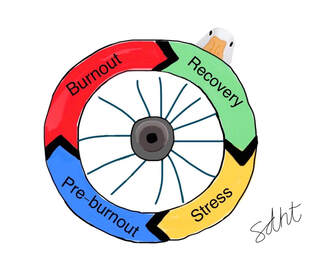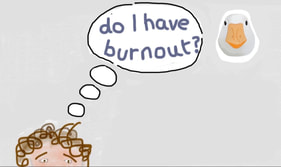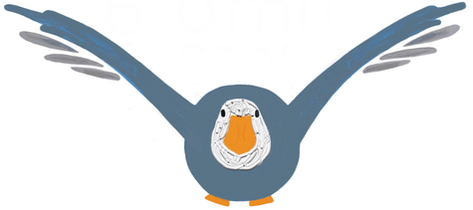 .The symptoms of burnout can easily be mistaken for other conditions and vice versa. This means that unravelling the contributing factors, symptoms and signs can be at times very challenging. Burnout often plays out in erratic cycles which means that things may appear to improve for a while - and then slip back or progress round the cycle again. The top three experiences that people with burnout invariably have are Exhaustion Cynicism and negativity about work Feeling ineffective at work If a person has these three in abundance - there is a strong likelihood that burnout may be present. However - a depressed person in the wrong job with thyroid disease might also have these three. This complexity of burnout means - it is frequently missed/overlooked - the damage it does is underestimated (physically, mentally, emotionally and to confidence, family relationships and career) - it may be treated as something else (and so won't improve) - it is common enough that it regularly coexists with a number of other conditions - muddying the waters further So it is rarely appropriate to say "do x y and z and your burnout will go"
The complexity of burnout means it is often masked, sticking plastered, ignored, denied - sometimes for many years. The upshot of all this is that there needs to be a structured approach to facing and fixing burnout . Short mono efforts such as "change your mattress" or "eat a better diet" on their own are very unlikely to have any impact on true burnout whatsoever. And after ousting burnout - then..... maintaining a life without burnout is the challenge (as old habits die hard!). Burnout Geese exists to help those with burnout make sense of it swiftly, efficiently and effectively and to help avoid it ever returning. A speedier, more profound, easier and longer lasting recovery awaits. You can start your burnout reversal and recovery by taking our free test. It is a quick easy and free way of facing up to burnout. Your score will indicate what next.
0 Comments
Facing up to burnout is one of the most difficult bits about it (after the suffering of it). The next most difficult thing is in admitting, accepting, seeking or asking for support in order to turn it around. It is not impossible to turn burnout around entirely on your own but it is likely to be
What we do at Burnout Geese is to smooth the burnout resolution journey and speed it up. You can then return to a burnout free life in the swiftest possible time and the least painful way. And not waste any more of your life - in burnout's clutches. There is a clear pathway into burnout. And a clear pathway out of burnout. We help you to understand both so that the burnout does not repeat further cycles. Let us help you reverse this long and painful journey into burnout. So that that the journey out is a lot nicer!!! The short answer is yes.
But it is complex. Careers can start out as a good match and become less so over time ( secondary career mismatch) And sometimes the career was never a good match right at the start ( primary career mismatch) A match between person and post is sometimes assumed by individual and employer - only to become obviously not a match over time. And sometimes there is no real career mismatch at the bottom of burnout.... it just feels as if it is. A career that matches a person well is a different issue to individual posts within that career that match well. For example a person can be well matched to a career in medicine but not well matched to being a GP. The whole issue of matching oneself to a career or post and whether burnout is then more or less likely to arise is only part of a much bigger picture. That said - when assessing burnout we always look at career mismatch as a potential contributing factor. The journey towards burnout is not anywhere near as linear as this sketch might at first suggest. So unravelling burnout - the causes, the development, the ups and downs of why it has come about it - is a very convoluted process but can be made considerably easier with the right input at the right time. When I started a career planning business in 1990 less than 5% of our clients were what I now know to be "burnout" sufferers ( the term burnout wasn't in common usage back then although it was first coined by Freudenberger in 1974).
What happened over the intervening 31 years? The percentage has gone to 40%...... and climbing. The percentage of people in work with burnout is now in almost unbelievable figures and is across professions and industries. With similar reports coming from around the world it is clear that it has already gone way beyond just a nuisance and way beyond something we can all keep ignoring. It is easy to blame big events like Brexit or Covid for burnout getting worse - but the truth is that burnout has been around and increasing for quite some time. During Covid - some people's burnout got better and for others it got worse - hinting that it is perhaps more about ones own personal cocktail of burnoutogenic factors than it is about specific events. The social shift towards ever increasing levels of burnout can be traced to a mix of "do more with less" and "always on" culture. However even without these - some people would still get burnout. So what I always try to impart is that it is pointless trying to blame any particular cause of burnout because - it is rarely that simple. This is almost the wrong question to ask.
Burnout comes on very slowly - at times it is so slow that a person doesn't really face up to it until it is already quite advanced. So it is not rocket science to conclude that it may take some time to resolve. How long - is how long is a piece of string. This is because every person's burnout has different contributing elements to it and each person will be at a different stage of burnout when they get in touch with us. That said - I can offer some ball park figures early burnout - can take a few weeks to begin to clearly be turning around ( once a programme of proactive supportive learning about burnout has got underway). significant burnout - this is likely to take around 3 months to show real signs of reversal advanced burnout - it is not unusual for this to take 6-9 months and perhaps longer if action cannot be taken for whatever reason. Folk are often so relieved to feel even a tiny bit of improvement - it is common for them to think they do not need to continue learning and steering the tanker back to port. This is definitely folly as what then almost invariably happens is that the burnout goes underground only to return in a second cycle. So the fastest way to eliminate burnout is to find out how bad it is and to face it with some structured learning support. Next time : Do I need sick leave for burnout?  Depression can be present before burnout begins . Depression can arise during burnout.. coincidentally or related. In the latter stages of severe burnout, depression is a feature. What this means is that some people are prescribed antidepressants ‘for’ burnout.
Burnout does not reverse on antidepressants. Nor does it go away after a holiday . Yet a short break away from work &/or antidepressants are often the ‘treatment’ suggested. That doesn’t make holidays or antidepressants bad.... just that burnout is unlikely to improve with those two ‘interventions’ along - primarily because the causes of burnout are not generally depression or lack of holiday. In order to reverse the suffering of burnout one needs to look at the multiple and unique blend of things contributing to that persons burnout. Antidepressants may be indicated IF there is clear evidence of depression but.... that will still only treat the depression NOT the burnout. Similarly a good long break from work can assist recovery from burnout but most normal holidays are simply not long enough . If no changes are made to the job or how the person copes ....most people with burnout will dread going on holiday and... returning from holiday. And just to confuse things further - some researchers have said that burnout is a form of depression. The World Health Organisation has not classified burnout as a mental illness - so that would seem to refute the depression label. The verdict is out on this for now but at the end of the day - what we call burnout is somewhat academic - the point is - it needs to be addressed and ousted from our workplaces and our lives. Poetry can encapsulate feelings and create pictures in few words.
We love poems about burnout - especially when there are before and after versions This one is a before ( as in before someone tackles their burnout). Burnout has eaten my life Destroyed all things with my wife Created a whole load of strife Now where did I put that knife Albeit short - this is quite a worrying poem. This person may be hinting at self harm - and even in jest this needs to be taken seriously. Not all burnout poems are quite this dark but severe burnout can certainly take people to a very hopeless place. If you would like to share a poem with us about your current burnout please use the contact form It can be cathartic to do so as well as a beginning to facing up to it and moving out of denial. ....a range of effects on the human body and mind, from a series of primarily work related causes/imbalances where an obvious lack of mental wellness is the outcome. This definition immediately turns ones attention to "how can we look at the whole person and the big picture as well as address the causes and bring more wellness to work?" rather than "how do we treat this person's mental illness / what is wrong with THEM?".
This seems an altogether fairer and more equitable way of pointing out that burnout is not a feature of happy well supported people who are in the right jobs and treated with respect. As I keep labouring.... burnout arises due to a combination of factors. Burnout can
... but on its own I don't believe it is a mental illness but I do believe it is a a damaging condition to mental and physical health and has a relationship with mental illness. Deal with the causes and elevate those elements of work that bring joy and the burnout will ease and eventually go away. Sounds too simple to be true. The challenge is..... it is simple but it is not easy to get to the bottom of the complex interactions that foster burnout in the workplace. Anyone is at risk of mental illness throughout their life. Anyone can suffer burnout if the conditions are ripe for its emergence. So we must all be aware of things that destroy mental wellness. And burnout is one of them. Who is affected when someone suffers from burnout?
The answer is - quite a lot of people. Their partner Their family Their colleagues Their friends Their bosses and employers No one wins when burnout bubbles away. Least of all of course - the person suffering with it. I have noticed that some people are extremely resistant to admitting they have burnout despite the obvious damage it is doing to them. There are lots of possible reasons for this which I will cover in a future post. But if a burnout sufferer's friends, family and colleagues are well informed about the causes, effects, natural progression and potential healing routes - then there is much more of a chance that the sufferer will access the help they need. It is quite possible that we are all at risk of getting burnout. This means everyone needs to know just a little bit more about burnout than is the case right now. Whether you have burnout or know someone who does - try watching our "Burnout - where do I start?" video - its only 4 minutes and can be accessed either on our Linked In page or go back to the home page. Watching it with someone else is even better as this can create a dialogue - whether it is with a burnout sufferer and their family, a manager and their colleague or an occupational health expert and their patient. Strictly speaking this is old news yet the sheer reach of burnout has blown me away and continues to do so ( and in reading this blog it might do the same for you - which is good). I have research from almost every profession, every continent and most countries each one highlighting burnout in their own small area. However few people are linking this all up. Even the World Health Organisation is being somewhat slow in identifying the alarming trends in burnout and the suffering caused by it. Quite how they can classify internet addiction but not fully classify burnout is beyond me.
Well I AM linking it all up. Burnout is affecting public, private and charitable organisations and workers. It is affecting people in developed and developing countries ( yes sadly we in the West appeared to have exported the condition). The percentage of people suffering it is showing no signs of reducing and in fact appears to be rapidly increasing especially in some professions. It is either a precursor of or a contributing factor for or a confusing coexisting outcome in many mental health conditions. Who do I think is to blame? Nobody.... and everybody. Unwittingly we are all contributing to it. Thus we must all take responsibility for fixing it. There is a very sad thing about burnout. It is entirely preventable. So why do so many people suffer from it? And why do organisations and individuals put up with it? This blog entry asks you only to ponder these questions and also this one..... If you had a huge wart on your nose that was entirely preventable or curable - would you not rush to get it sorted and take whatever steps required to deal with it? I'd guess you would. I rest my case.
The good news is there are some simple solutions to this very complex, pervading and apparently intractable problem. The bad news is - despite that, both individuals and organisations have a propensity to deny and avoid the burnout elephant in the room.
It is as if everyone knows burnout exists - journalists dine out on it, researchers make careers on it - but few are entirely clear what the true extent (and it is huge!) of the economic damage from burnout amounts to, nor the difference between it and a "bit of stress requiring just a few days sick leave". As a result burnout is lurking, at a workplace near you and to an extent .....under the radar. Part of the problem is that people fear admitting it. I can understand this fear. When one doesn't know the full information it is very easy to find the topic of burnout extremely intimidating with both individuals and employers terrified of "taking the lid off Pandora's box” and suffering repercussions as a result. This is what Burnout Geese is all about - demystifying burnout. Yes it is a big problem and a growing one - but there are things each and every one of us can do to turn burnout around - for ourselves, our colleagues and our society. |
AuthorSonia Hutton-Taylor Archives
June 2022
CategoriesBe sure you don't miss our next blog
https://www.lifewire.com/find-an-rss-feed-on-a-website-3486647 https://feedly.com/i/welcome |



 RSS Feed
RSS Feed